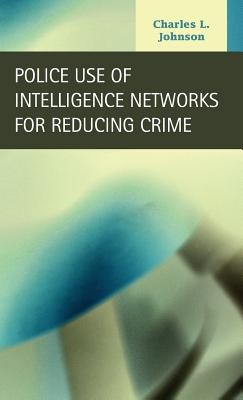
- We will send in 10–14 business days.
- Author: Charles L Johnson
- Publisher: LFB Scholarly Publishing
- ISBN-10: 1593323816
- ISBN-13: 9781593323813
- Format: 14 x 21.6 x 1.9 cm, kieti viršeliai
- Language: English
- SAVE -10% with code: EXTRA
Police Use of Intelligence Networks for Reducing Crime (e-book) (used book) | bookbook.eu
Reviews
Description
Johnson examines the role of communications and intelligence in policing. Based on an evaluation of a unit within the Office of the Washington Attorney General, Johnson demonstrates that information flow in the criminal justice system is often hindered by self-interest and a lack of trust between members of the criminal justice community. Johnson studied people at various responsibility levels, including community corrections officers, crime investigators, supervisors, and police chiefs and Sheriffs. The existence of trust-based relationships is not the only key to effective intelligence-led policing. Crime fighters must also learn to avoid "silo-thinking" and get beyond the notion that their individual effort is the most important element of solving crimes. Lastly, agencies have to adopt intelligence gathering capabilities that are compatible with one-another.
EXTRA 10 % discount with code: EXTRA
The promotion ends in 21d.07:13:20
The discount code is valid when purchasing from 10 €. Discounts do not stack.
- Author: Charles L Johnson
- Publisher: LFB Scholarly Publishing
- ISBN-10: 1593323816
- ISBN-13: 9781593323813
- Format: 14 x 21.6 x 1.9 cm, kieti viršeliai
- Language: English English
Johnson examines the role of communications and intelligence in policing. Based on an evaluation of a unit within the Office of the Washington Attorney General, Johnson demonstrates that information flow in the criminal justice system is often hindered by self-interest and a lack of trust between members of the criminal justice community. Johnson studied people at various responsibility levels, including community corrections officers, crime investigators, supervisors, and police chiefs and Sheriffs. The existence of trust-based relationships is not the only key to effective intelligence-led policing. Crime fighters must also learn to avoid "silo-thinking" and get beyond the notion that their individual effort is the most important element of solving crimes. Lastly, agencies have to adopt intelligence gathering capabilities that are compatible with one-another.


Reviews